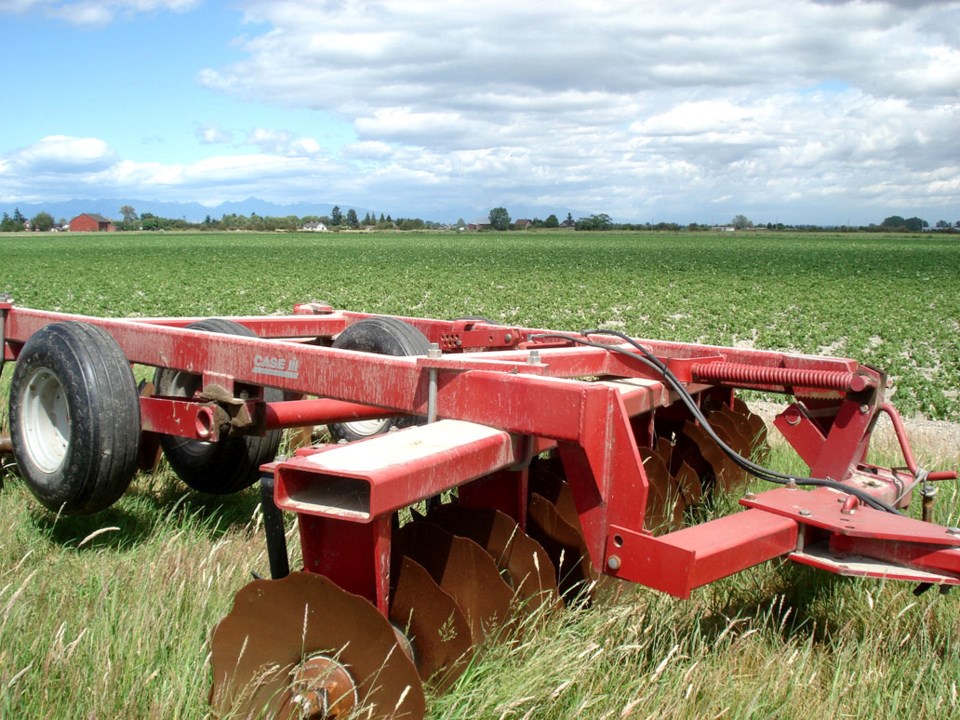Delta South MLA Ian Paton has re-introduced a private member’s bill that aims to protect Brunswick Point farmland from future development.
“Brunswick Point is an incredibly special piece of land that borders the ocean and the Fraser River, with beautiful walking trails,” said Paton in a news release.
Paton, the Liberal agriculture critic, said not only does that area have prime farmland but is also an important stop for migratory birds.
“It remains vitally important that this precious 600 acres of farmland that continues to be held by the Crown be kept for agriculture and wildlife habitat in perpetuity, and be sold back to local farmers or offered back with long-term leases. It’s my hope the NDP will call this bill for debate so we can resolve this painful history and protect this unique place for generations to come,” said Paton.
In 1968, about 4,000 acres of farmland in Delta was expropriated to support a future port at Roberts Bank.
Many years later, after realizing the expropriated lands were not needed during that time, the province offered to sell most of the farms back to the original owners who had been leasing the properties.
However, just over 600 acres of Brunswick Point farmland were held back by the Crown, only offered to longtime farm families who originally owned them through short-term leases.
Farmers and the City of Delta had been calling for an opportunity for the farmers to buy the land or get longer-term leases.
The worry is that the lands are now seen as important for industrial development, given Brunswick Point’s proximity to the port and the shortage of available industrial properties in the region.
The province last year reiterated that there is no intention to change the status of the lands at this point.
City of Delta staff told the Delta Agricultural Advisory Committee that the municipality had spoken with the government about the area and that there was nothing new to report.
Delta council also sent the province a letter of support for a Delta Farmers’ Institute’s (DFI) correspondence supporting Paton’s earlier private member’s bill, calling on the government to take steps to ensure the lands remain agriculture.
“As you know a substantial number of productive farmland was lost in the Roberts Bank area. We have been fortunate for over a century that the 600 acres at Brunswick Point, with its fertile soil and proximity to the ocean, has produced high-quality vegetable crops while providing habitat and feed for millions of migratory birds. The community needs to know this farmland will remain as a public heritage asset in its natural environment and feed our population. It is an integral component of Delta’s agricultural base,” wrote DFI vice-president Jack Bates.
The DFI two years ago also raised concern about the sale of almost 200 acres at Brunswick Point to the Tsawwassen First Nation.
The concern is that the First Nation could eventually take over Brunswick Point and apply to have the lands removed from Delta to become part of TFN territory, since the lands are contiguous with TFN, paving the way for their removal from the Agricultural Land Reserve.
In a 2006 lawsuit filed in B.C. Supreme Court, the Brunswick Point families asked the court to grant them first right of refusal to buy the lands back. That would have conflicted with the TFN’s treaty.
An agreement reached five years later allows the families to regain title at a pre-negotiated purchase price. The TFN still has first right of first refusal should the lands be sold outside the Brunswick Point families.
Mayor George Harvie in his letter of support for the DFI warned that the increased cost of land creates a situation where purchasing the lands is becoming unattainable for most of the original farm families.




